For many individuals struggling with substance dependency, the decision to seek treatment can be one of the most difficult decisions you can make on the path toward recovery. Of course, while admitting to yourself that rehab is the necessary course of action is never easy, it certainly isn’t the last challenging moment you’ll have before sobriety. However, once you’ve successfully taken this step and have begun a recovery program, the desire to build on your positive momentum is understandable. It’s possible to thrive in your recovery program, but to do so, you’ll need to take advantage of the many resources available to you.
One of the most important things to know about treatment for substance use disorder is that recovery is far from instantaneous. Instead, it’s an ongoing process, marked by the decisions you make to maintain sobriety each and every day. Therefore, setting foot in rehab isn’t the end of the road but the beginning of a journey towards improvement. Along this path, you’ll have an array of resources at your fingertips, allowing you to make steady progress in your fight for a sober life.
Recovery is possible for any individual who enters rehab, but it’s earned with both patience and effort. Knowing how to make the most out of your time in rehab is the first step towards your recovery goals.
What to Know Before Going to Rehab
Before you enter rehab, it is important to learn as much as you can about the recovery process. Knowing what to expect from your time in a rehab program can allow you to prepare for what’s ahead and begin to set realistic expectations for your recovery. Here are our three most important takeaways:
Expect to Exit Your Comfort Zone
As beneficial as a rehab program is to your recovery from addiction—and as beneficial as sobriety is to your mental and physical health—that doesn’t mean the road to recovery will feel great or even comfortable every step of the way. In rehab, you will feel uncomfortable, on occasion. After all, you’re actively fighting against some of your most deeply-ingrained habits and routines as you work to create an entirely new life for yourself. This work isn’t possible if you attempt to remain inside your current comfort zone.
That being said, this doesn’t mean that rehab will be a miserable experience—in fact, that shouldn’t be the case. Discomfort and misery are far from the same experience. In fact, chances are that misery is more in line with the experience you’re currently having, due to your addiction. At its core, the purpose of recovery is to pull you out of this daily misery, even if you have to work through some discomfort to get there.
Thoughts of Quitting Are Normal
If you notice thoughts of leaving rehab prematurely entering your mind, don’t become alarmed or beat yourself up—this isn’t a sign that you’re somehow weak or not fully committed to your recovery. In fact, if you speak to any other individual who has spent some time in rehab, chances are that they’ll tell you they faced the same feelings. Just because these thoughts pop up every now and again doesn’t mean you’ll act on them.
When you’re experiencing these thoughts, also take time to remind yourself of all the reasons you chose to go to rehab. With sobriety comes a happier, healthier, and more fulfilling life, and rehab means you’re currently on the right track to get there. Quitting would only place you back at square one, even if the prospect of leaving can be tempting.
That said, should you experience doubts about your recovery while in rehab, don’t be afraid to voice them. There will be plenty of people around you who have experienced the same and are willing to help set your mind back on track.
Rehab Isn’t an Instant Cure-All
As mentioned earlier, recovery isn’t the immediate outcome of entering a rehab facility. Not only is it a long-term process, but it’s also a process that requires continuous work. Put more simply, rehab isn’t a cure-all. If you aren’t willing and ready to begin recovery, there’s little chance you will succeed, no matter how competent the facility.
At the end of the day, recovery is dependent upon the individual. While rehab is one of the best resources you can utilize during recovery from substance dependency, it cannot overcome an unwillingness to put in the work. Once you commit to keeping an open mind and striving for sobriety, however, your rehab program can provide you with all the life-changing benefits you expect.
Tips for Getting the Most Out of Rehab
Now that you’ve established some realistic expectations of the rehab experience, it’s time to ask yourself an important question: how do I get the most out of treatment?
Know What to Ask Before Enrolling
While we’ve provided some general items that help you anticipate what to expect in rehab, all programs are not created equal. You’ll need to identify the best type of program for you in order to give yourself the best chance for success—don’t simply enroll in the first rehab program you come across in your area.
You have every right to be picky when it comes to selecting the recovery program for you, so be patient with your search, as urgent as your situation has become. When it comes to something as life-changing and powerful as rehab, it’s critical to stop and ask questions about the facility and its programs. Take stock of your personal priorities and what you’re hoping to get out of treatment. This self-reflection is essential to know what qualities and amenities you can benefit from the most in a recovery program.
Then, inquire about the components most important to you, which may include questions like:
- Can you help me reach my recovery goal?
- Do you offer detox?
- Do you tailor a treatment plan to me?
- What nutrition programming do you offer?
- How long will my stay be?
- Can I receive ongoing support after I finish rehab?
- Do you accept my insurance?
Remember: Good Treatment is Evidence-Based
As you search for a recovery program, it’s also vital to remember the importance of evidence-based treatment. Before selecting a rehab facility, ensure that the services and therapies they offer are based on research and evidence. To learn more about this requirement, begin by browsing the facility’s site and reading any information they offer about the treatment styles and techniques they utilize. Then, discuss this matter with the facility directly, to determine how the treatment programs they offer align with your recovery goals and other components of your individual situation.
Once you’ve asked the right questions and ensured that you’re entering an evidence-based facility, you’re well on your way to finding a treatment program that fits you and your unique path toward recovery.
Always Stay Open-Minded (and Do What the Facility Asks)
As highlighted earlier, inherent to rehab and recovery is the need to step outside your comfort zone and embrace the unfamiliarity. If you’re currently experiencing active addiction, working toward sobriety can seem like one of the most intimidating life changes you could possibly make. It can be daunting to go against so many of your deeply ingrained behaviors, and without an open mind, recovery will be especially difficult to achieve.
However, it’s important to keep in mind that if you continue to make the same decisions you’ve been making, you can only expect to receive the same result. When you’re hoping to change your life in such a big way, you’ll need to embrace the unknown and begin making decisions that were previously unfamiliar to you.
In order to accomplish all of this during rehab, you’ll need to keep your mind open to what the facility asks of you—whether it’s considering new ideas or approaching an entirely different way of life. If you’re hoping to learn as much as you can and reap all the benefits of rehab, an open mind is essential to achieving growth and change. This is one of the most vital aspects of healing your body and mind in the long term.
Try to Stay Positive
Try to remain positive about your current situation and the prospect of recovery. Even when things are at their most difficult and you’re having doubts about the future, it’s in your best interest to cultivate a positive outlook. Chances are, as you are making the decision to enter rehab, you’re already in one of the darkest periods of your life. This is normal, and is often what influences individuals to take the big leap toward pursuing recovery.
Depression can also be common before and during rehab due to the drugs or alcohol you’re no longer using to self-medicate. These substances have the ability to interact with the pleasure centers of your brain, which is just one of the reasons they’re so highly addictive in the first place. If you’re currently used to relying upon drugs to light up your brain’s pleasure centers, it can be an ongoing struggle to find happiness without addictive substances.
To combat depression and darkness, try to bring attention to the positives of your situation. This doesn’t mean you’ll need to force yourself to take an overwhelmingly positive outlook on your situation as a whole. Rather, if you simply remind yourself of the small positives on a regular basis, you’ll take steps toward instilling a sense of hope and motivation as you make your way through your rehab program.
Keep in mind that if you’re feeling exhausted or emotionally drained during rehab, this is a sign that you’re making progress. Don’t allow these negative feelings to demotivate you. Instead, use them as a reminder that you’re pushing your own boundaries and putting in the hard work to achieve long-term sobriety.
Don’t Be Afraid to Ask Questions
We’ve already touched upon how essential learning and growing is to achieve success in any rehab program. In rehab, this learning will be a collaborative activity if you’re looking to receive all the new knowledge and guidance now available to you. If you’re not open to asking questions, you will not get the most out of your recovery program.
Unfortunately, many individuals enter rehab under the belief that if they pose too many questions, they’ll look ignorant or under-informed. However, this is far from true. Those in charge of your treatment not only expect that you’ll engage and ask them questions, but they are also hopeful that you’ll participate in this behavior that’s so important to reaching sobriety.
No matter the questions you have, avoid withholding or overthinking as you enter rehab. You’re in a completely foreign, overwhelming, or even confusing situation. It’s perfectly reasonable that you’ll have your fair share of questions to ask about the recovery journey, achieving sobriety, or even the rehab program you’re participating in.
Find Your Support System and Stay Connected After Treatment
One of the biggest mistakes an individual can make during rehab is staying isolated under the belief that this is the most effective way to focus on their own recovery. Although it might seem counterintuitive, in order to benefit the most from your recovery journey, you’ll need to build relationships and bonds with the individuals around you. Develop a working relationship with those in charge of your treatment as well as others in treatment alongside you.
Not only will building relationships keep you motivated during your stay in rehab, it could also provide an invaluable support system for the future. Exiting rehab isn’t the point at which you’ve achieved total recovery. In many ways, it’s only the beginning. If you’re looking to remain sober after you’ve reentered the world, you’ll need a strong support system to keep you motivated and offer advice or assistance.

CADC II, Certified AOD Counselor
Nora Jenkins has made the quality and committed care we provide at Lilac Recovery Center possible. Nora is experienced in providing care to assist in rebuilding relationships to support healthy, long-term recovery. Her professional background includes clinical management, program administration, and counseling.




